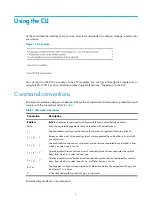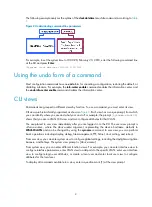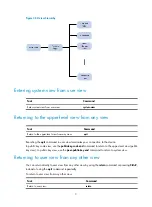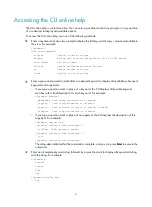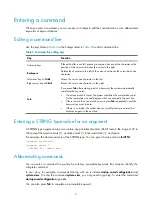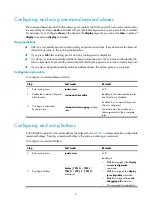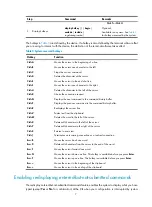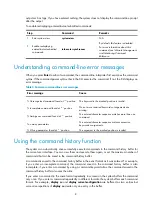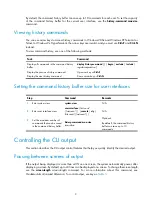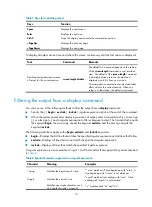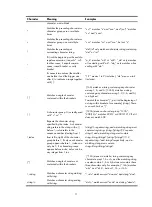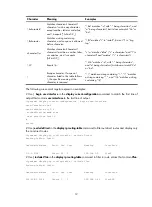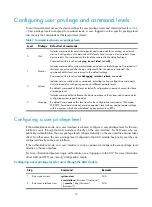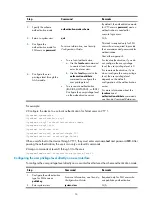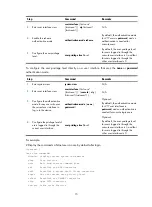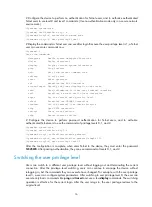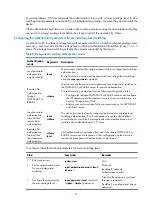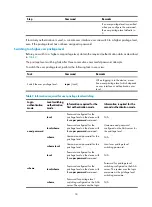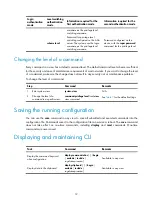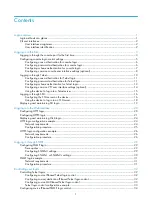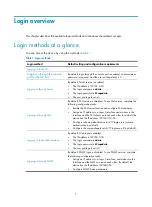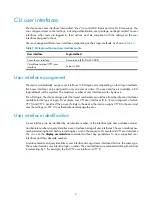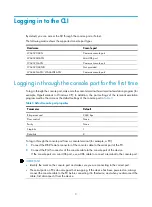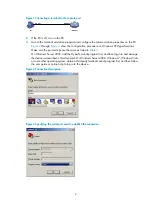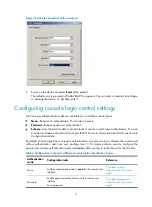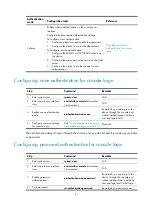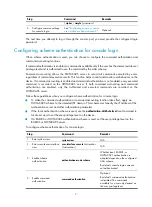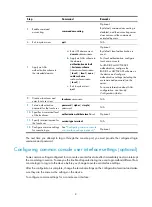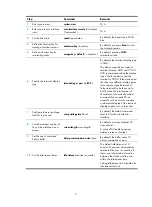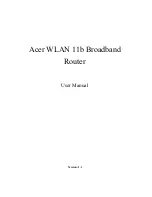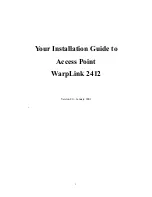
15
Step Command
Remarks
3.
Enter user interface view.
user-interface
{
first-num1
[
last-num1
] |
vty
first-num2
[
last-num2
] }
N/A
4.
Enable the scheme
authentication mode.
authentication-mode
scheme
By default, the authentication mode
for VTY users is
password
, and no
authentication is needed for
console users.
5.
Configure the user privilege
level.
user privilege level
level
By default, the user privilege level
for users logged in through the
console user interface is 3, and that
for users logged in through the
other user interfaces is 0.
To configure the user privilege level directly on a user interface that uses the
none
or
password
authentication mode:
Step Command
Remarks
1.
Enter system view.
system-view
N/A
2.
Enter user interface view.
user-interface
{
first-num1
[
last-num1
] | {
console
|
vty
}
first-num2
[
last-num2
] }
N/A
3.
Configure the authentication
mode for any user who uses
the current user interface to
log in to the device.
authentication-mode
{
none
|
password
}
Optional.
By default, the authentication mode
for VTY user interfaces is
password
, and no authentication is
needed for console login users.
4.
Configure the privilege level of
users logged in through the
current user interface.
user privilege level
level
Optional.
By default, the user privilege level
for users logged in through the
console user interface is 3, and that
for users logged in through the
other user interfaces is 0.
For example:
# Display the commands a Telnet user can use by default after login.
<Sysname> ?
User view commands:
display Display current system information
ping Ping function
quit Exit from current command view
rsh Establish one RSH connection
ssh2 Establish a secure shell client connection
super Set the current user priority level
telnet Establish one TELNET connection
tftp Open TFTP connection
tracert Trace route function

